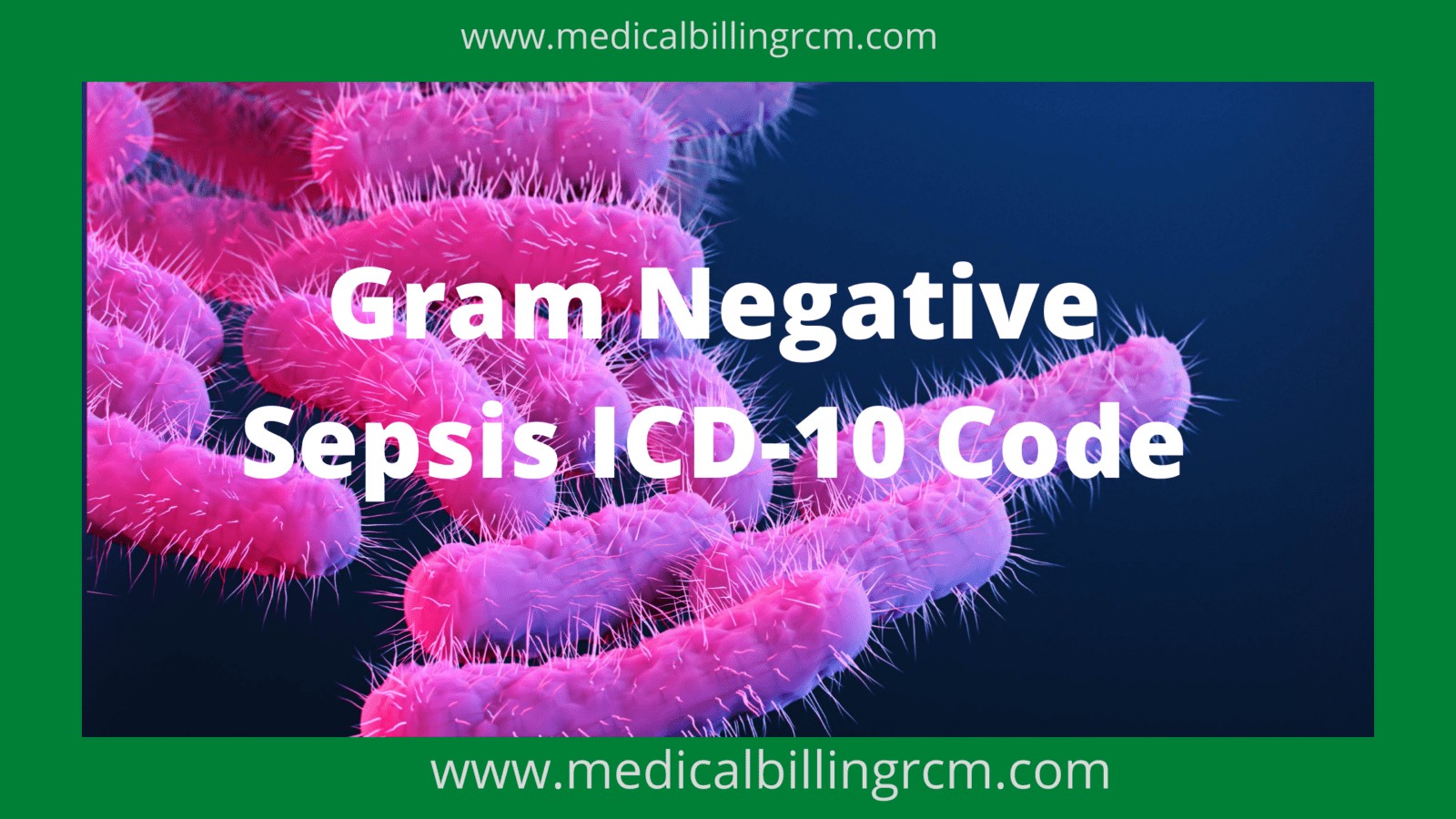Sepsis is a systemic disease infected by microorganisms or their products in the blood. Bacteria is the presence of viable organisms in the circulation. Gram negative bacteria is the cause of a critically ill patient who suffers from gram negative sepsis.
Gram-negative bacteria are a common complication in severe falciparum malaria, particularly in children, and are a risk factor for death. Mortality from Gram negative sepsis a serious problem and challenges continue to be intimidating.
- A40.9- Streptococcal Sepsis, unspecified: Sepsis caused by Streptococcus bacteria, but the specific type is not specified.
- A41-Other sepsis: Sepsis caused by organisms other than Streptococcus. It is a general category for Sepsis caused by various pathogens.
- A41.0 – Sepsis due to Staphylococcus aureus: Sepsis caused specifically by the bacterium Staphylococcus aureus.
- A41.01 – Sepsis due to Methicillin susceptible Staphylococcus aureus: Sepsis caused by Methicillin-susceptible strains of Staphylococcus aureus.
- A41.02 – Sepsis due to Methicillin resistant Staphylococcus aureus: Sepsis caused by Methicillin-resistant strains of Staphylococcus aureus (MRSA).
- A41.1 – Sepsis due to other specified staphylococcus: Sepsis caused by other specified types of staphylococcus bacteria, distinct from Staphylococcus aureus.
- A41.2 -Sepsis due to unspecified staphylococcus: Sepsis caused by staphylococcus bacteria, but the specific type is not specified.
- A41.3 – Sepsis due to Hemophilus influenzae: Sepsis caused by the bacterium Hemophilus influenzae.
- A41.4 – Sepsis due to anaerobes: Sepsis caused by anaerobic bacteria, organisms that can thrive in environments with little or no oxygen.
- A41.5 – Sepsis due to other Gram-negative organisms: Sepsis caused by other Gram-negative bacteria.
- A41.50 Gram-negative sepsis, unspecified: Sepsis caused by Gram-negative bacteria, but the specific type is not specified.
- A41.51 – Sepsis due to Escherichia coli [E. coli]: Sepsis caused by the bacterium Escherichia coli, often associated with gastrointestinal infections.
- A41.52 – Sepsis due to Pseudomonas: Sepsis caused by the bacterium Pseudomonas can lead to severe infections, especially in hospital settings.
- A41.53 – Sepsis due to Serratia: Sepsis caused by the bacterium Serratia.
- A41.59 – Other Gram-negative Sepsis: Sepsis caused by other unspecified Gram-negative bacteria.
- A41.8 -Other specified Sepsis: Sepsis caused by specific organisms not covered by the previous codes.
- A41.81- Sepsis due to Enterococcus: Sepsis caused by the bacterium Enterococcus.
- A41.89 – Other specified Sepsis: Sepsis caused by other specified organisms not covered by previous codes.
- A41.9 – Sepsis, unspecified organism: Sepsis caused by an infection, but the specific organism is not specified.
- A42 – Actinomycosis: Actinomycosis is a bacterial infection caused by Actinomyces species.
- A42.0 – Pulmonary actinomycosis: Actinomycosis affects the lungs.

A41.50 is an Gram negative sepsis ICD-10-CM dx code that can be used to indicate a diagnosis for reimbursement purposes
- A41.50 ICD-10-CM dx code is effective from October 1, 2020.(As per update of 2021 edition).
- This is the USA ICD-10-CM version of A41.50 and other international versions of ICD-10 A41.50 may be different.
Applicable To
- This code applicable to Gram negative sepsis ICD-10
The following code(s) above A41.50 contain annotation back-references
that may be applicable to A41.50:
- A00-B99
Certain infectious and parasitic diseases
- A41
Other sepsis
Approximate Synonyms
- Sepsis without acute organ dysfunction due to gram negative septicemia, final identification pending.
- Sepsis, gram neg septicemia, organism id pending.
- Septic shock acute organ dysfunction, gram negative.
- Septic shock with acute organ dysfunction due to gram negative septicemia
- Severe sepsis acute organ dysfunction.
- Severe sepsis with acute organ dysfunction due to gram negative septicemia, final identification pending.
ICD-10-CM A41.50 is grouped within Diagnostic Related Groups (MS-DRG v38.0):
- 791– Prematurity with major problems.
- 793- Full-term neonate with major problems.
- 870 -Septicemia or severe sepsis with mv (migrainous vertigo) >96 hours
- 871 Septicemia or severe sepsis without mv >96 hours with MCC
- 872 Septicemia or severe sepsis without mv >96 hours without MCC(major complication or comorbidity)
- 974 Hiv with major related condition with MCC (major complication or comorbidity)
- 975 Hiv with major related condition with cc (complication or comorbidity)
- 976 Hiv with the major related condition without cc/MCC
Convert A41.50 to ICD-9-CM
Diagnosis Index entries containing back-references to A41.50:
- Colibacillosis A49.8
- generalized A41.50
It is important to use appropriate diagnosis codes in the medical claims for maximum reimbursement from insurance companies. We tried to provide correct information at one place and gathered from authentic sources of information. Gram negative sepsis ICD-10 CM codes updated as per recent information of 2021. If any discrepancy found please inform us via the contact us page.
Reference:- ICD-10-CM Diagnosis Code
Related Articles:
Pneumonia ICD 10 | ICD-10-CM Code for Pneumonia
ICD 10 Code for Abdominal Pain
The author and contributor of this blog "NSingh" is working in Medical Billing and Coding since 2010. He is MBA in marketing and Having vaste experience in different scopes of Medical Billing and Coding as AR-Follow-up, Payment Posting, Charge posting, Coding, etc.

